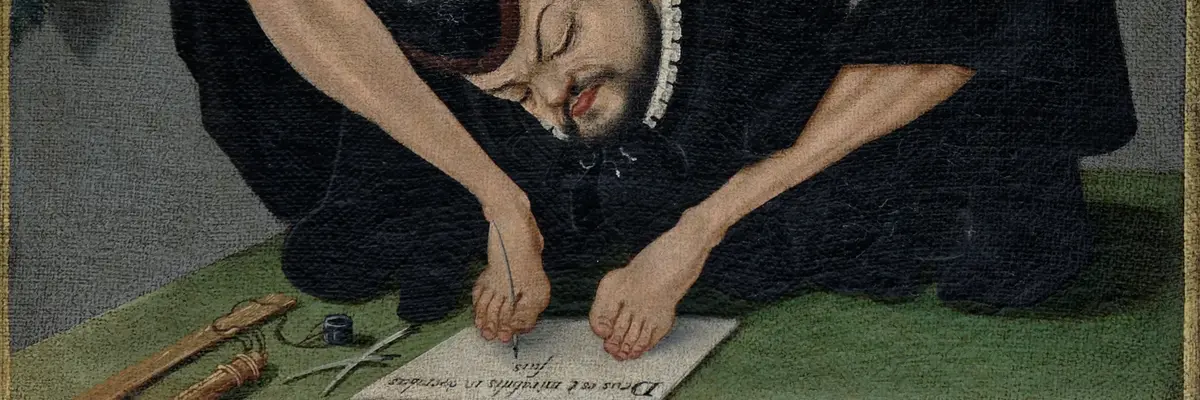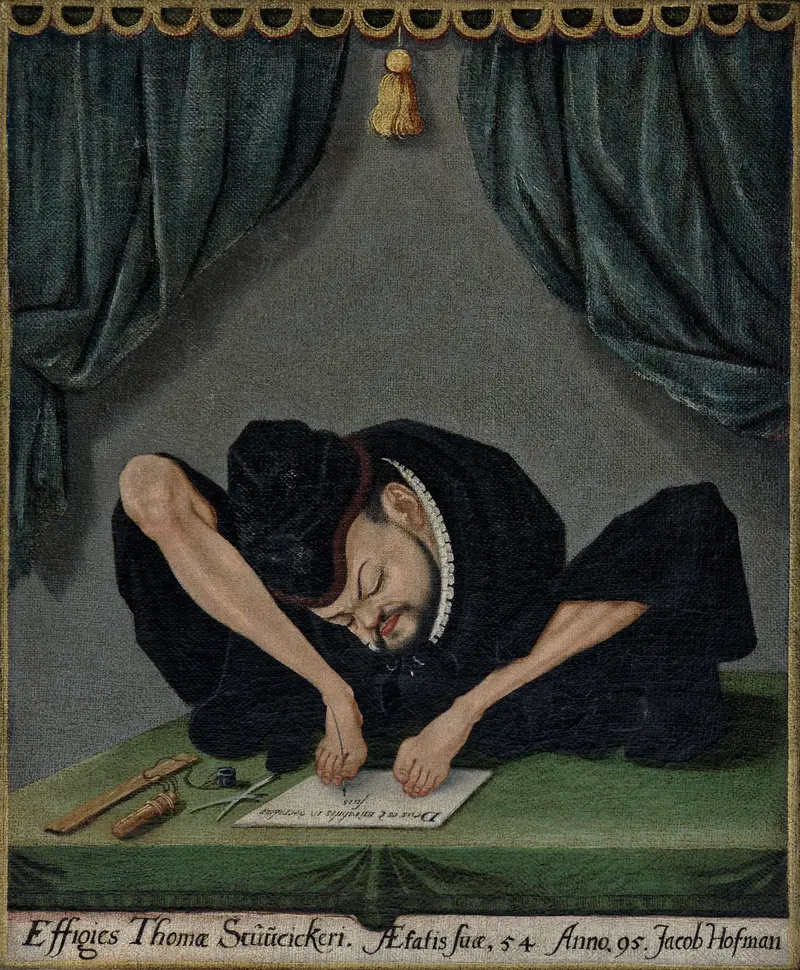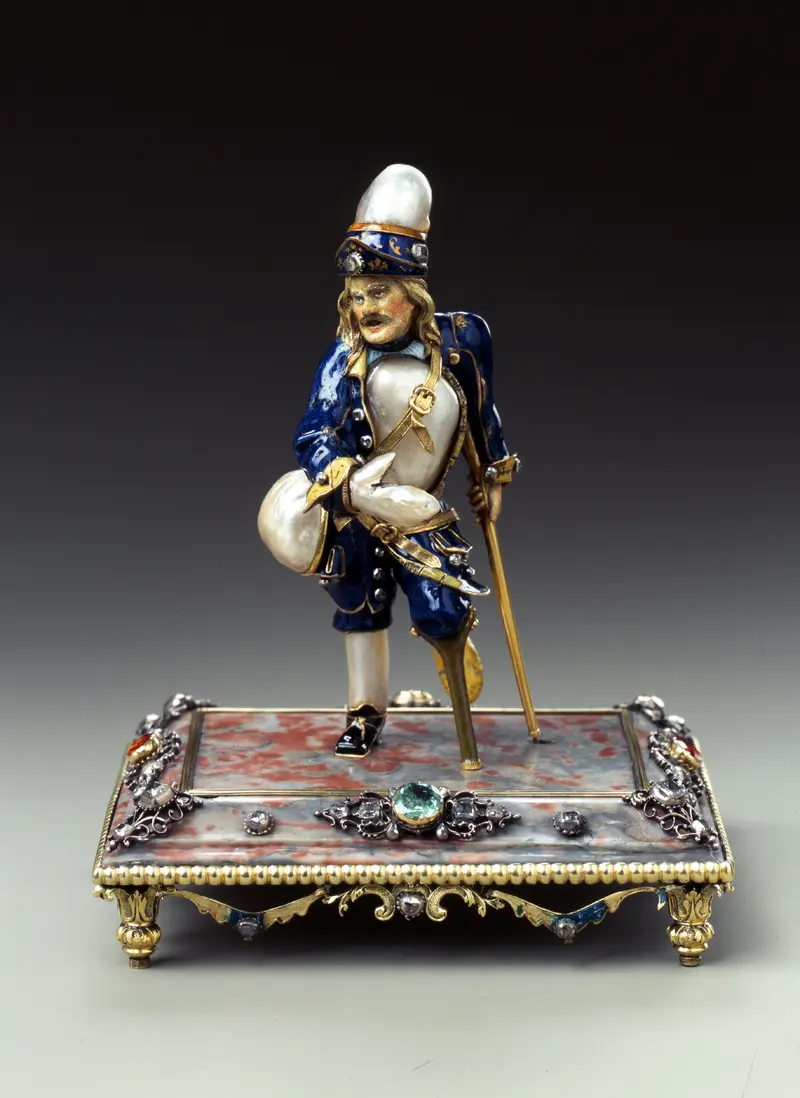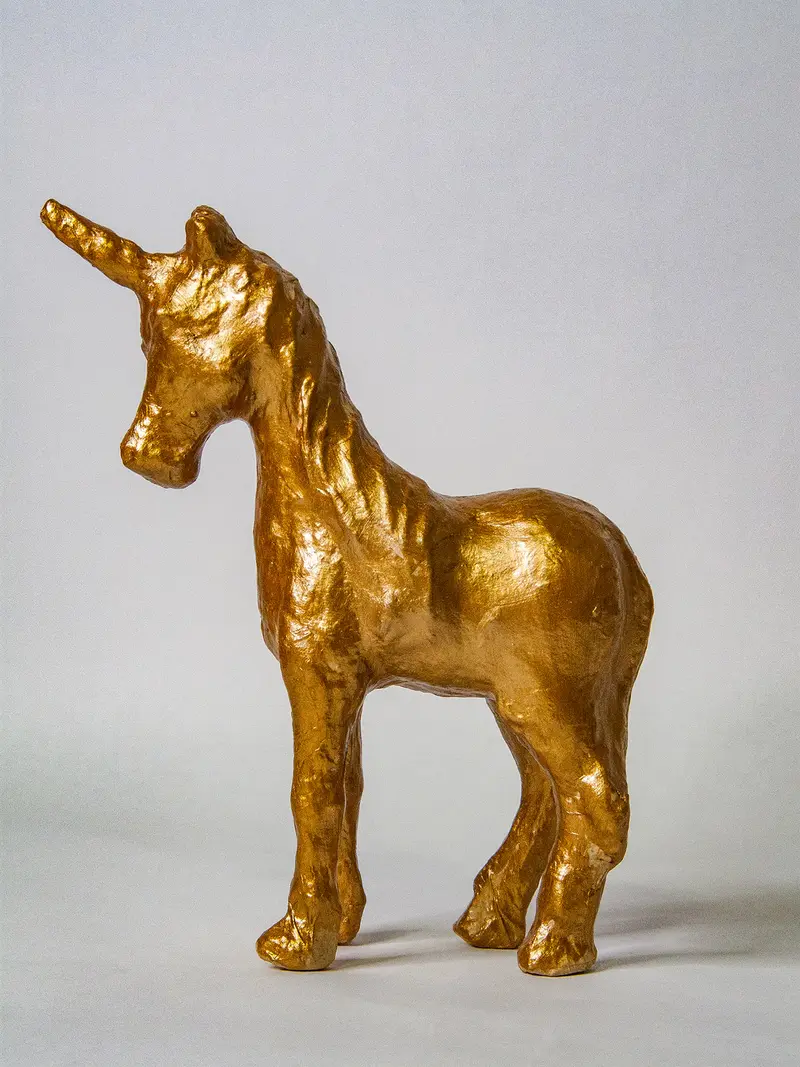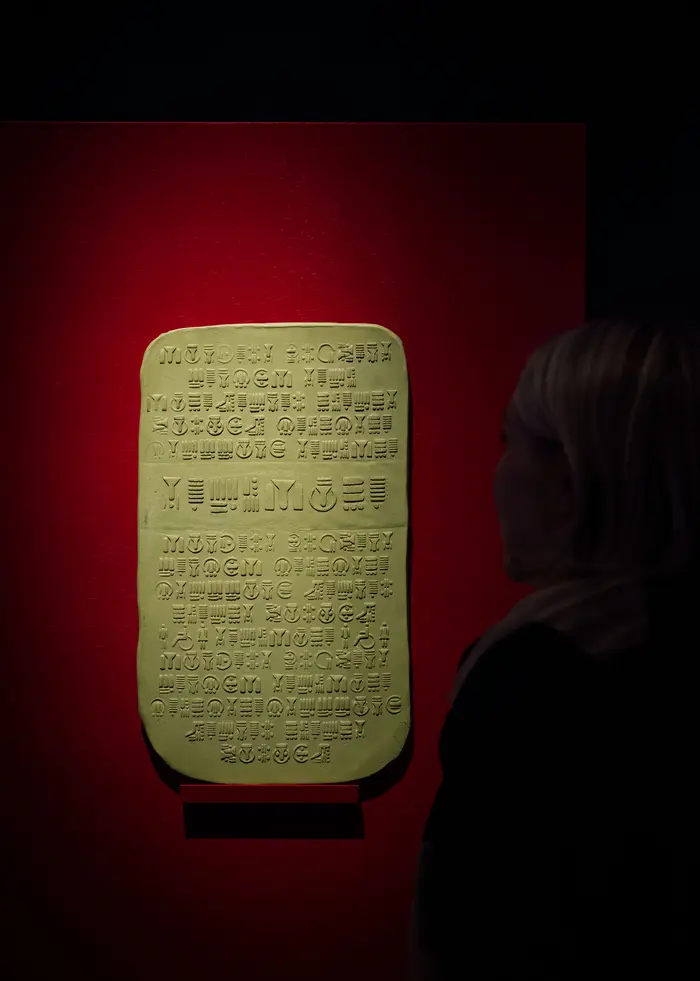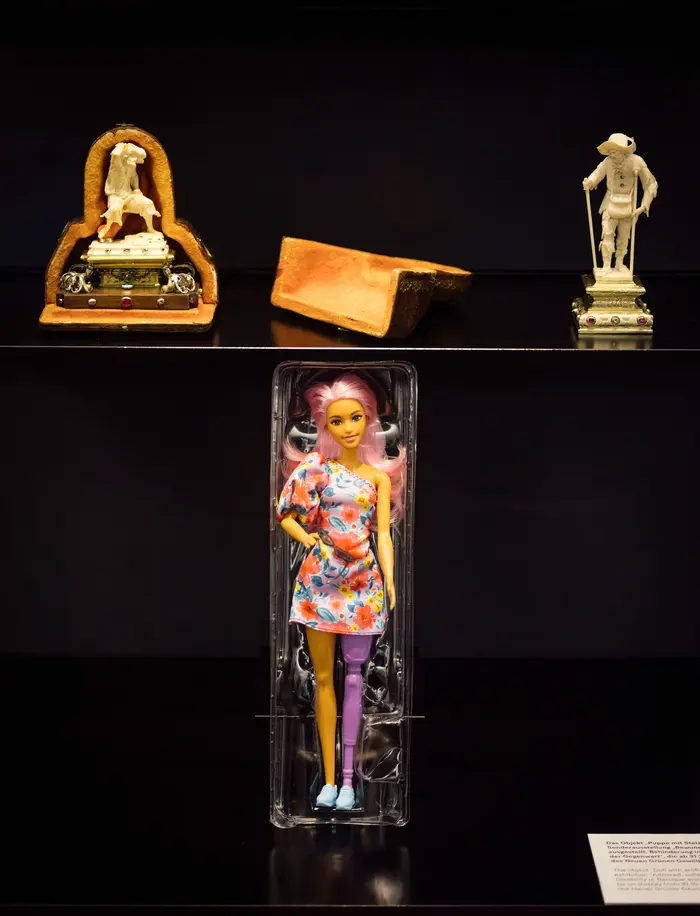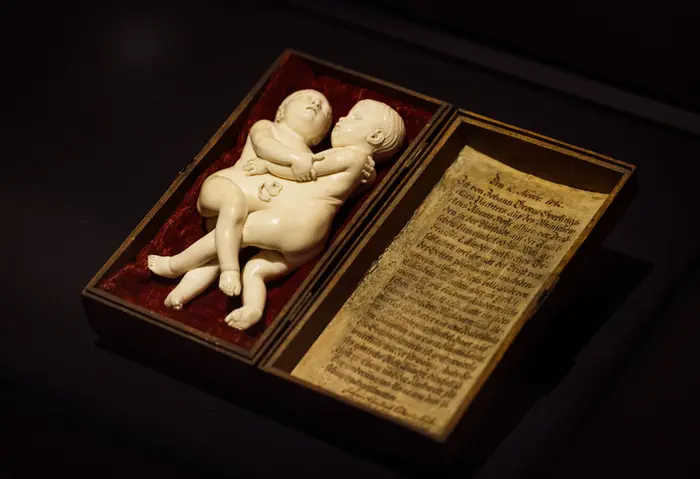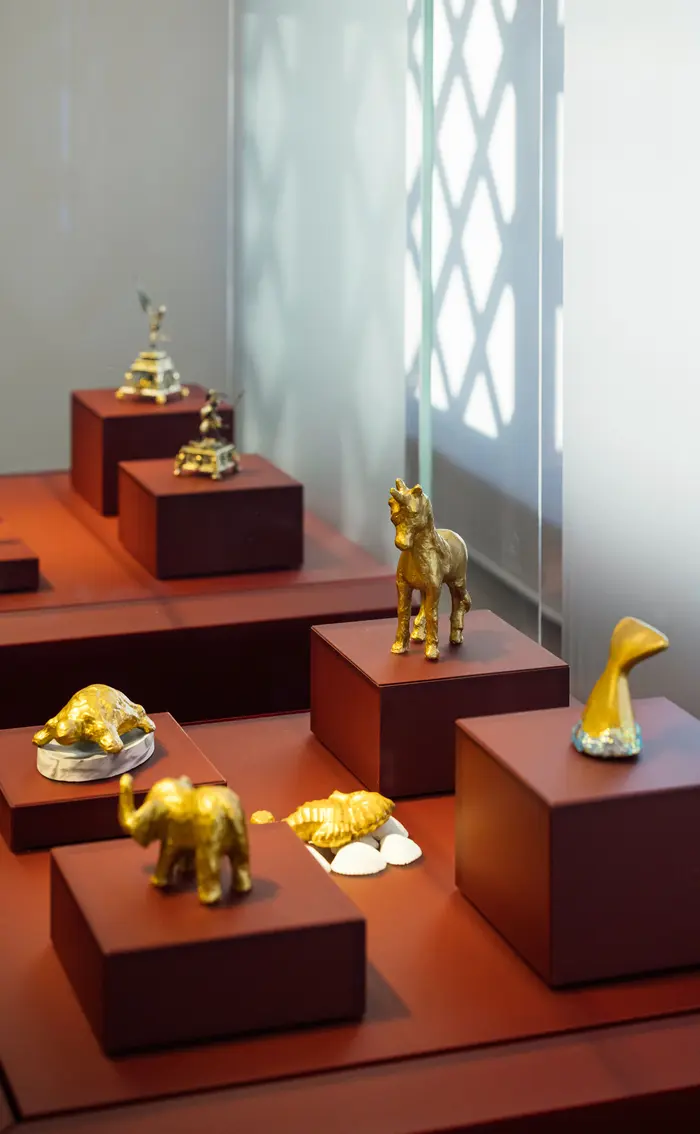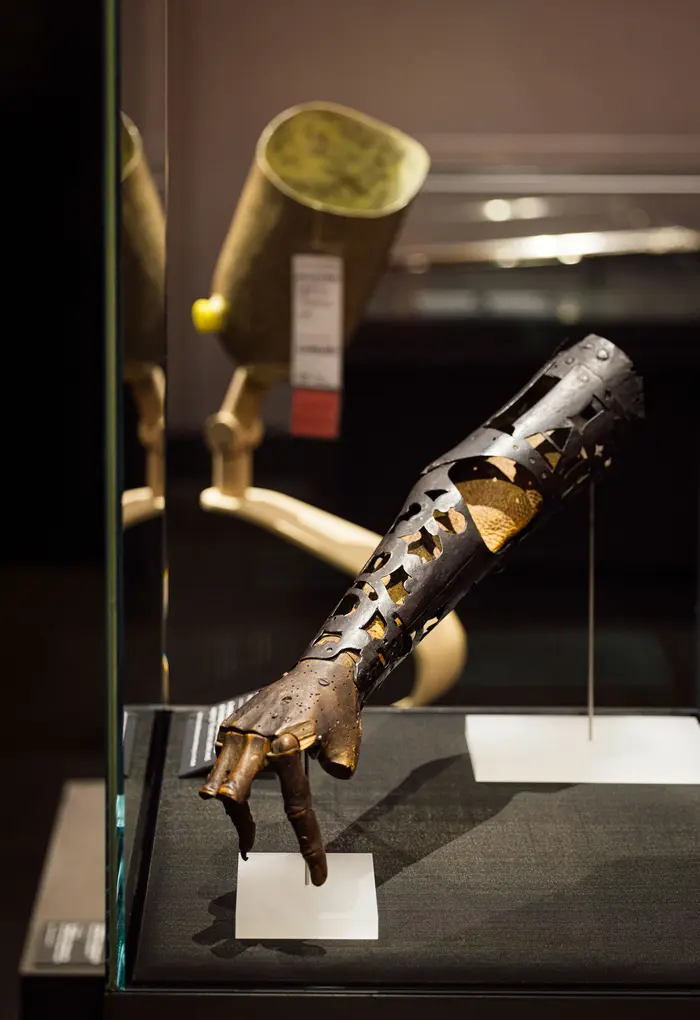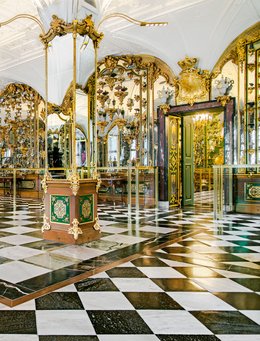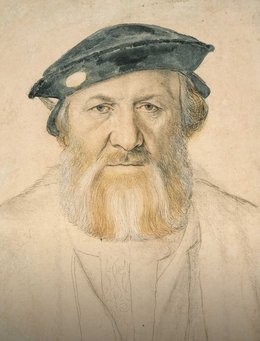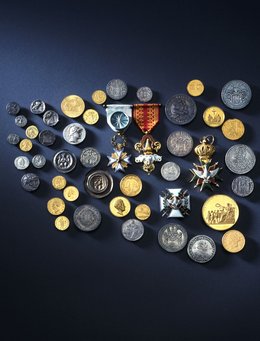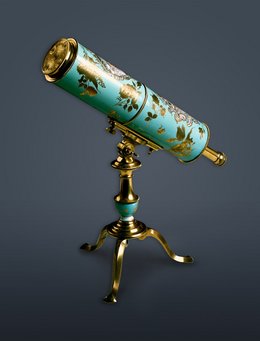Leitobjekt der Ausstellung
One important exhibit is the painting by Thomas Schweicker from Schwäbisch Hall. He was very famous in the late 16th century because he could write skilfully with his feet. His portrait was even exhibited in the Dresden Kunstkammer. At many European courts, there were people of unusually short height who were known as ‘court dwarfs’. They had a special position and were well paid. But people with restricted growth were also the target of ridicule and were often marginalised. This can also be seen in the works of art.
